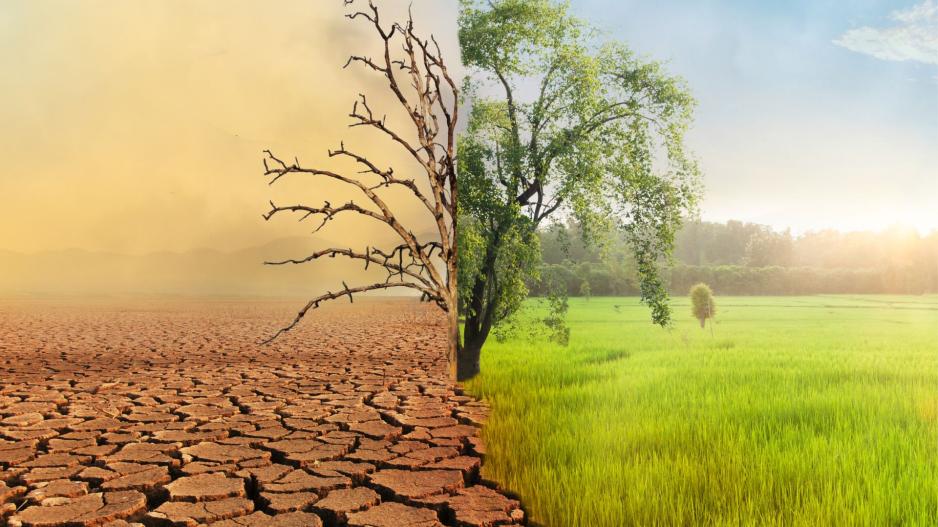Rising Climate Crisis How Global Warming Is Impacting Economies

As the planet warms, the impacts of climate change are becoming increasingly evident across the globe. From devastating wildfires in the western United States to destructive floods in South Asia, the consequences of a rapidly changing climate are no longer a distant concern—they are a present-day reality. This global crisis is not just an environmental issue; it has deep and far-reaching effects on economies, communities, and human health. Governments, businesses, and individuals all face a growing need to respond with urgency to mitigate these impacts and adapt to the new normal.
The Economic Toll of Climate Change
One of the most significant ways that climate change is being felt worldwide is through its economic toll. Extreme weather events, rising sea levels, and changing agricultural patterns are costing countries billions of dollars each year. According to a report from the United Nations, global economic losses due to extreme weather and climate events exceeded $300 billion in 2020 alone—a staggering amount that continues to rise as these events become more frequent and severe.
In many developing countries, the impacts of climate change are exacerbating poverty and inequality. Vulnerable communities, often located in areas prone to natural disasters, are hit the hardest. For example, countries in the Caribbean, Southeast Asia, and sub-Saharan Africa, where much of the population depends on agriculture for their livelihoods, are seeing crop yields decline due to unpredictable weather patterns and droughts. This not only reduces food availability but also leads to price hikes, making basic goods less affordable for many families.
At the same time, climate change is negatively affecting key sectors of the global economy. In coastal regions, rising sea levels are threatening major cities like New York, Miami, and Jakarta, with flood risks that could displace millions of people and damage infrastructure worth trillions of dollars. The costs associated with relocating entire communities, repairing infrastructure, and rebuilding economies are projected to rise sharply in the coming decades.
Climate Change and Public Health
Beyond the economic effects, the climate crisis poses a serious threat to public health. As global temperatures rise, so too does the incidence of heat-related illnesses, especially in densely populated urban areas. Extreme heatwaves have become more common in regions such as Europe, North America, and Australia, placing vulnerable populations—particularly the elderly, children, and people with pre-existing health conditions—at greater risk.
Additionally, climate change is fueling the spread of infectious diseases. Warmer temperatures and altered rainfall patterns create favorable conditions for the expansion of disease-carrying insects, such as mosquitoes. Diseases like malaria, dengue fever, and Zika virus are spreading into regions where they were once rare or nonexistent. These health risks place an enormous burden on already overstretched healthcare systems, particularly in low-income countries.
Changing climate patterns are also affecting food security. Crop failures due to droughts or floods, coupled with rising temperatures, lead to reduced food production in many parts of the world. This in turn drives up food prices, making nutritious food less accessible to millions, particularly in poorer countries. Malnutrition rates are expected to rise, further burdening healthcare systems.
Displacement and Migration
Another major consequence of the climate crisis is the displacement of people from their homes. Climate-induced migration is already a growing phenomenon, with millions of people being forced to move due to natural disasters, sea level rise, and desertification. The UN estimates that by 2050, climate change could displace more than 200 million people worldwide, creating a new generation of “climate refugees.”
The impacts of climate-induced displacement are felt both locally and globally. In regions where large numbers of people are forced to move, host countries may struggle to provide adequate shelter, healthcare, and jobs for newcomers, leading to increased tensions and conflict. In addition, the strain on resources can fuel political instability and social unrest. Managing these migratory flows requires international cooperation and policy reforms to protect vulnerable populations and ensure they have access to basic rights and opportunities.
What Needs to Be Done?
To address the far-reaching impacts of climate change, experts agree that urgent and coordinated action is needed on multiple fronts. Governments must accelerate efforts to reduce carbon emissions, transition to renewable energy sources, and implement climate adaptation measures. The Paris Agreement, which aims to limit global warming to well below 2 degrees Celsius, provides a global framework for climate action, but more ambitious targets and policies are required to meet this goal.
Businesses, too, have a critical role to play in mitigating climate change. Corporations must invest in sustainable practices, reduce their carbon footprints, and support green innovation. Many companies are already taking steps toward sustainability, with some pledging to achieve net-zero emissions by mid-century. However, these efforts need to be scaled up significantly if the world is to avoid the worst impacts of climate change.
On a local level, communities can take action by implementing resilience strategies such as building more sustainable infrastructure, preparing for extreme weather events, and improving water management. Governments must provide funding and support to help these communities prepare for climate impacts, especially those that are most vulnerable.
Finally, individuals have a role in reducing their own environmental impact. Simple actions, such as reducing waste, using energy-efficient appliances, and supporting sustainable businesses, can collectively make a difference. Public awareness and education campaigns are essential in fostering a culture of sustainability and encouraging people to adopt greener lifestyles.
Consequences
The climate crisis is one of the greatest challenges facing humanity today, and its impacts are already being felt across the globe. Rising temperatures, extreme weather events, and sea level rise are placing a heavy toll on economies, health systems, and communities. If left unaddressed, these challenges will only worsen, with dire consequences for future generations. However, by taking bold and collective action now—at the governmental, corporate, and individual levels—societies around the world can mitigate the worst effects of climate change and build a more resilient, sustainable future. The time for action is now.


